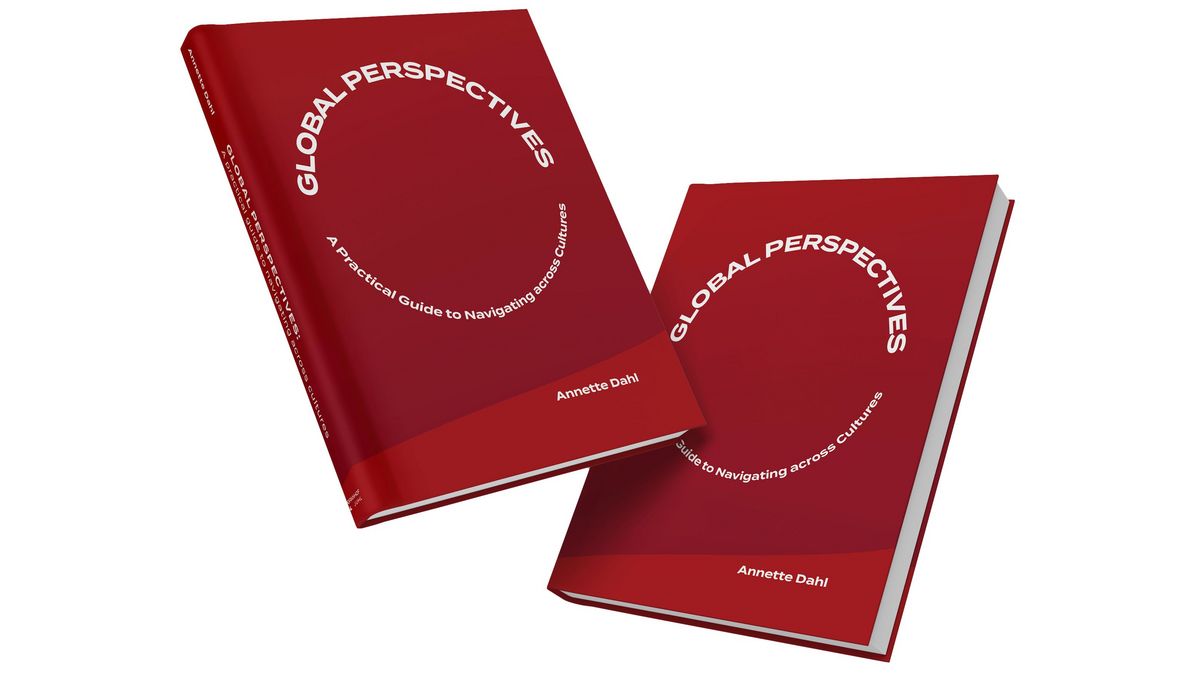
5 Questions for Anders Endahl Mielnicki on Tryg’s LGBT+ Network
Anders Endahl Mielnicki is a co-initiator of the LGBT+ network founded at the insurance company Tryg.
We asked Anders how the network started, about its members and activities, and why there is a need for an LGBT+ network.
Read the article below, where you'll also find tips on how to be a good ally for colleagues belonging to the LGBT+ segment or other minority groups.
1. How did Tryg’s LGBT+ network start?
It all began when one of my colleagues, Maria, and I attended a workshop on minorities in general at Tryg. And we started discussing whether there was a basis for an LGBT+ network at Tryg. We wondered if there were others in the organization like us who saw a need for it.
We quickly got our HR department on board with the idea. And then we wrote a post on our intranet announcing that a network was starting up for LGBT+ people, allies and others interested in the subject, and that anyone could write to us if they wanted to join.
Then we waited with bated breath to see if anyone would reach out. And I can assure you they did! We had expected a handful or two perhaps – but actually a lot of people contacted us. So, in the spring of 2022, Tryg’s LGBT+ network became a reality.
Tryg is a large company with colleagues spread out nationwide. So, we started with some Teams events and met a lot of colleagues throughout the organization.
One of the first goals we set ourselves was that we wanted Tryg to make its mark at Copenhagen Pride. Once again, we quickly got HR on board, they contacted the right people further up in the system, and we met fabulous support on all sides.
Initially, we thought it would be good to highlight Pride in-house. An event, some presentations, fly the rainbow flag – along those lines.
And then it struck us that we could also participate in the Pride. Whether we would just be a small group of five or ten, then so be it. But the same pattern repeated itself. People popped up everywhere. On the very first day you could sign up, over 150 people came forward. In the end, more than 350 people walked in the Pride Parade. We were totally blown over backwards!
So, you could say that Tryg’s LGBT+ network has grown from the bottom up and has been met by huge support and backing all the way up and out into the organization. It has been a really positive and exciting journey!
2. Who are the members of the network?
In a nutshell, the members of Tryg’s LGBT+ network are any employees who want to join up.
People come from far and wide in the organization, colleagues from all possible levels, departments, and functions.
Some members belong to the LGBT+ segment. Others are those we would call "allies". These are people who are not from the LGBT+ segment, but who support it. They might have relatives or friends in the LGBT+ community. Or they might "just" be interested in the cause and want to help where they can.
So, we are a wonderful mix of people from the rainbow spectrum and others who, for various reasons, want to support it. How much or how little people want to talk about their reasons for joining the network is entirely up to them.
The allies play a vital role. When we first let the organization know that we had started an LGBT+ network, some people wrote and said they were in some doubt about whether they could join. Because they didn’t feel that they belonged, as they were not LGBT+ people. We answered that as long as you want to back up the idea and see some problems from a rainbow perspective, you are heartily welcome.
During our talks in the network, I have seen how many of the allies have had aha moments, when they have heard how much energy LGBT+ individuals sometimes use trying to seem as "normal" as possible, and not stand out.
And I’ve heard a couple of good allies say at one point: "Can you just stop for a moment so we can have five minutes to breathe?" Because what they were hearing had touched them so deeply. All the small aspects of everyday life that LGBT+ people have to consider and fight against – they had NEVER spared them a thought.
3. Can you give a couple of tips about how to be a good ally?
One way of being a good ally is if you have a platform that other people don’t have – e.g., as a leader – and use that platform to talk about other people’s causes. And that not only covers LGBT+ causes but also other minority group causes. It’s about signaling that it is important to get EVERYONE included, and that it must be safe for everyone to be themselves, also at work.
Even if you don’t have a special platform, there are still lots of things you can do. Like showing your interest in minority colleagues’ causes, trying to empathize with their struggles, and taking part in events or employee networks, such as our LGBT+ network.
On a day-to-day basis, you can also be a good ally by speaking out if others use condescending language either intentionally or unintentionally. Unfortunately, you can still hear condescending words being used about people’s gender, sexuality, ethnicity etc. at Danish workplaces. And there are still people who say, "Ha ha, come on, it was just for fun." But it’s not funny.
That kind of language was definitely more common just 15 years ago. You can repeat the saying "That was another era". And that is both right and wrong. Wrong in the way that it has NEVER been OK to say those things. But right in the way that more and more people today are realizing that it is not acceptable.
So, it is awesome if, as an ally, you dare to stand up for your minority colleagues – even if no one from these minority groups is present. And e.g., say "Hey, it’s not OK to say that" if something condescending is said. It takes courage to stand up for others in that way, and I have very deep respect for allies who do that.
I have sometimes sensed insecurity from colleagues at Tryg who are not from the LGBT+ segment themselves, whether they are allies in the right way – and they might be afraid of doing something wrong.
Personally, I feel that if you just come along and are genuinely curious, and genuinely want to support us, then you shouldn’t be afraid of doing something wrong. Just ask and join in the conversation. Then those of us who are LGBT+ people will speak up if anything would be better formulated differently. And then we learn from each other along the way.
4. What are the network’s activities?
Tryg’s participation in Copenhagen Pride in August 2023 culminated from our work in the network.
It involved more than just the Pride Parade itself. The whole week up to the parade was full of activities. One of the highlights was our Pride Bar, which had a panel of LGBT+ network members answering questions that had been submitted anonymously. We covered a lot of ground and there was room for smiles, good advice, and touching stories along the way.
But the network is far from being just a "Pride network". Because the task of ensuring that everyone can go to work feeling safe, and that you, as an employee, can be exactly who you are, is just as important on all the other 364 days of the year.
We try to hold network meetings once a month. We share knowledge about diversity, inclusion, and possible action areas. People look at their own business areas with a focus on finding things we do today that could be even more inclusive.
And then we discuss opportunities for various workshops and events. Both some for members of the network and some larger events where people from the entire company can take part. All this is intended to give inspiration in everyday life and help to keep the conversation going.
5. Why is an LGBT+ network necessary?
Last summer, a representative from LGBT+ Denmark visited Tryg. She held a speech on the importance of having a diverse workplace and described topics like how to be a good ally for your colleagues.
At one point, she asked everyone there: "When did you last come out at your workplace?"
Some participants giggled here and there. Because when you belong to the majority, the question "Should I ‘come out’ at my workplace?" is not something you need to think about. Just as you don’t need to spend energy wondering whether you should have a photo of your partner or children on your desk. Or speak openly about what you did at the weekend.
Then she turned it around and asked: "How do you think a person feels who doesn’t feel safe saying who their partner is? Who they have children with? And why? And how? And what they do at the weekends?"
I thought that expressed it really well. Because these are examples of all the small everyday things that many minorities have to struggle with but that you don’t need to use energy on when you belong to the majority. Minority stress it is called today.
As one of my network colleagues described it, you can feel as if you are always on the alert: "If I walk down the street holding hands with my boyfriend, my radar is running at 120 kilometers an hour scanning our surroundings, thinking about where I’m going, when I’m going there, who is nearby etc."
And as he said, that applies to many of us at work too.
You are constantly scanning your surroundings and using a lot of energy thinking about what you are doing and saying. Many LGBT+ people have some bad experiences in their baggage – unwanted comments, hateful remarks or worse. And these things have an impact and mean that many people develop "survival tactics" and do not feel safe just being themselves.
In January 2023, Boston Consulting Group (BCG) and LGBT+ Denmark published a report on LGBT+ people’s well-being in the Danish labor market.
The report showed, among other things:
- That 81% of LGBT+ respondents had experienced or witnessed discriminatory behavior at their workplace within the past two years.
- That condescending comments are the most common form of discriminatory behavior – 75% of the LGBT+ respondents had personally experienced or witnessed this type of behavior within the past two years.
- That this subsequently had a significant negative impact on the employee’s well-being, whether or not they had experienced or witnessed the episodes in question.
So, there is still some way to go before everyone can feel safe being who they are. Also at Danish workplaces. An LGBT+ network is a step in the right direction because it creates a platform for focusing on the LGBT+ agenda, sharing experiences, engaging in some important conversations, and finding solutions to how you can create an even more inclusive workplace.
At the same time, as a company, you are signaling that you take these issues seriously. And signaling that is particularly important for younger generations, who are typically further ahead in terms of diversity and inclusion than older generations.
Want to know more?
The report covers the challenges still faced by LGBT+ people in the Danish labor market and includes good advice on how your company can combat discrimination at work.

